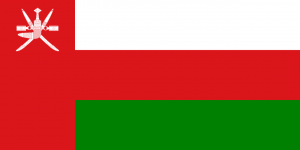Language/Gulf-arabic/Culture/Oman-Timeline
< Language | Gulf-arabic | Culture
Jump to navigation
Jump to search
Rate this lesson:
Historical Timeline for Oman - A chronology of key events
Oman Timeline[edit | edit source]
| Date | Event |
|---|---|
| - 500 to 622 BC. AD | Persian domination. |
| 622 | Advent of Islam. |
| 700 | Establishment of ibadism, election of the first imam, Julanda bin Massoud. |
| 1508 | The Portuguese take Muscat and Sohar. |
| 1659 | The Ottoman Empire takes control of Oman. |
| 1665 | The Portuguese are driven out of Oman. Conquest of East Africa. |
| 1718 | Civil war caused by the death of Imam bin Saif II. |
| 1744 | Ahmed bin Said becomes imamate. Foundation of the Al-Busaidi dynasty. |
| 1783 | Muscat (Muscat in French) becomes the capital of Oman. |
| 1798 | Treaty between Oman and the East India Company. |
| 1800 | Oman becomes a de facto protectorate. |
| 1832 | The Sultan establishes his residence in Zanzibar which becomes the second capital. |
| 1804 | Said bin Sultan succeeds his father and will reign until 1856. A period of prosperity and openness to the outside world. |
| 1890 | Oman becomes a British protectorate. |
| 1891 | Signature of a defense treaty with England, which undertakes to intervene in all conflicts concerning the country. |
| 1924 | First oil concession. |
| 1932 | Sultan Said bin Taymour comes to power. |
| 1949-1955 | Buraymi conflict over oil concessions. |
| 1954 | End of the imamate. |
| 1962 | Discovery of oil deposits. |
| 1963-1964 | Dhofar rebellion. |
| 1967 | First oil export. |
| 1970 | Qaboos bin Said comes to power. |
| 1971 | The country becomes a member of the United Nations and the Arab League. |
| 1976 | End of the rebellion in Dhofar. |
| 1981 | Membership of the Gulf Cooperation Council. |
| 1987 | Opening of the country to tourism. |
| 1991 | Election of the first Consultative Council. |
| 1992 | Border agreement with Yemen. |
| 1996 | Promulgation of the fundamental law which governs the policy of the country. |
| 1997 | Two women are elected to the Advisory Council. |
| 2000 | Signature of the protocol of accession to the World Trade Organization. |
| 2003 | Customs union for GCC states. Omanis can vote from the age of 21. |
| 2006 | Muscat, "cultural capital of the Arab world". |
| 2007 | Cyclone Gonu hits Oman killing 50 people and causing damage of approximately $ 4 billion. |
| 2010 | Muscat hosts the Asian Beach Games. First edition of the Tour of Oman Cycling. |
| 2011 | Demonstrations by young people and the unemployed, especially in Sohar. In response, the Sultan operates a cabinet reshuffle and announces important social measures. |
| 2011-2015 | The sultanate entered into its eighth five-year plan with the main objectives of diversifying the economy (development of tourism and port and airport infrastructure in particular), increasing the standard of living, controlling inflation and private sect |
| 2013 | The government states its desire to limit the number of expatriates to 33% of the population. The Sultan encourages the spirit of initiative and investment opportunities for the participation of youth in the development of the country. |
| 2015 | The last French hostage, Isabelle Prime, held in Yemen since February 24, was released on August 7, in particular thanks to the mediation of the Sultanate of Oman. |
| 2015-2020 | The sultanate enters its ninth five-year plan with objectives similar to the previous plan, but reinforced, in particular the diversification of the economy and sources of income, a continuation of the policy of omanization and development of the private |
| 2017 | The UN ranks the Sultanate in 52nd place in the world in terms of HDI, among the countries with "high level of development", while its Gulf neighbors are classified in the category of countries with "very high level of development ". |
| 2017 | The Sultanate is ranked 62nd globally (behind its Gulf neighbors) at the World Economic Forum on Competitiveness. |
| 2017 | In the World Bank's Doing Business report, the Sultanate is ranked 3rd among the Gulf countries and 71st in the world. |
| 2018 | The Sultanate is positioned in 68th place in the ranking on the perception of corruption of Transparency International, behind the United Arab Emirates (21st), Qatar (29th) and Saudi Arabia (49th). |
Source[edit | edit source]
World Timelines[edit source]
Other Lessons[edit | edit source]


